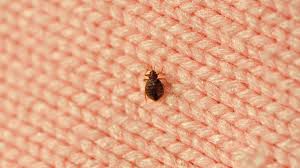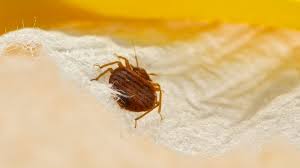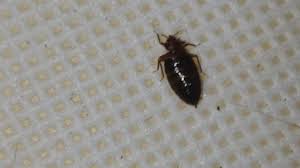What Scent Keeps Bed Bugs Away?
Many bugs are repelled by certain smells, such as peppermint, tea tree oil, and lavender. As such, it makes sense that bed bugs too, would be repelled by certain smells. While bed bugs do try to avoid certain scents, there’s a lot of misinformation out there about what those smells are. So, what’s the truth?
One known scent that repels bed bugs is the pheromones secreted by the nymphs, or baby bed bugs. These are meant to keep male bed bugs away from the nymphs, so they don’t attempt to mate with them. These pheromones, though, only work on male bed bugs, and will do nothing to dissuade females from invading a space. It is still however, sold in many products on the market today. While using these products could be better than nothing, they won’t likely eliminate the problem completely.
Many people use essential oils to repel bed bugs, as well. The United States Department of Agriculture even conducted a study to determine if essential oils were effective in keeping bed bugs away. The results of the study were interesting. While bed bugs didn’t appear to be repelled by the smell of the oils, they did seem to have an effect on the bed bug’s body..
While not overly effective, the most useful essential oils for deterring bed bugs appear to be blood orange oil, paraffin oil, silicone oil, and spearmint oil. However, the effectiveness of these oils is extremely limited.

Kill the bedbugs
Home cleaning methods
You can first try to remove bedbugs without chemicals. These bugs are pretty easy to kill with high heat, 115°F (46°C), or intense cold , 32°F(less than 0°C
Here are a few ways to treat bedbugs using these methods:
- Wash bedding and clothes in hot water for 30 minutes. Then put them in a dryer on the highest heat setting for 30 minutes.
- Use a steamer on mattresses, couches, and other places where bedbugs hide.
- Pack up infested items in black bags and leave them outside on a hot day (95 degrees) or in a closed car. In cooler temperatures, it can take two to five months to kill sealed-up bugs.
- Put bags containing bedbugs in the freezer at 0°F (-17°C). Use a thermometer to check the temperature. Leave them in there for at least four days.
Once you’ve cleaned all visible bedbugs, make the area inhospitable for their friends. Place bedbug-proof covers over your mattress and box spring. Zip these covers up all the way. Bugs that are trapped inside will die, and new bugs won’t be able to get in.
If these methods don’t wipe out all the bugs, you may need to try an insecticide.
Non-chemical and chemical treatments
Insecticides can help rid your home of bedbugs. Look for products that are EPA-registered, and specifically marked for “bedbugs.”
Here are a few types of insecticides you can try:
- Pyrethrins and pyrethroids are the most common chemicals used to kill bedbugs. Yet some bedbugs have become resistant to them.
- Pyrroles like chlorfenapyr kill bedbugs by disrupting their cells.
- Neonicotinoids are man-made versions of nicotine. They damage the bugs’ nervous system. This type of chemical works on bedbugs that have become resistant to other pesticides.
- Dessicants are substances that destroy the bugs’ protective outer coating. Without this coating, the bugs dry out and die. Two examples of dessicants are silica aerogel (Tri-Die and CimeXa) and diatomaceous earth. The advantage to dessicants is that bedbugs can’t become resistant to them, but they work slowly. These products can take a few months to kill off all the bugs.
- Foggers or bug bombs kill bedbugs, but they can’t get into cracks and crevices where these bugs hide. They can also be toxic to humans if you use them incorrectly. Read the label carefully. Leave the room before you set off a fogger.
- Plant oil-based products like EcoRaider and Bed Bug Patrolare less toxic than chemical insecticides, and they work well against bedbugs.

How to Use a Spray to Kill Bed Bugs on Mattresses
When you use a spray to kill bed bugs, you have to apply it directly to them. This is easier said than done because they’ll do anything they can to avoid you or get away from you. So, how can you effectively kill them with a spray? Here’s how.
- Get prepared. Purchase or make your spray, and have it ready with you. Tidy the room before you begin by picking up anything off the floor, and bagging all of your clothes in preparation to wash them. Seal the bags and leave them outside for the time being.
- Get started by flipping the mattress. Start spraying immediately, taking care to hit any bed bug that’s scurrying away. Pay special attention to the piping of the mattress, spraying it all the way around to kill any bed bugs or their eggs hiding there.
- Wipe down the main area of infestation with a damp cloth, and bag it before you leave the room. Wiping the area down will get rid of any lingering smell. If you didn’t know, bed bugs find their home by searching out its smell.
- Repeat this process with nearby furniture, or anywhere else they might be hiding (bar electrical outlets, since it’s best not to spray those.)
- Once you’re done, wash the clothes that you bagged. Put the bag itself into the washing machine before you open it, and dump the clothes directly inside. Wash for at least half an hour at a high temperature to guarantee that you kill both the bed bugs and their eggs.
It’s important to repeat this entire process, too. Sprays like these will not be able to kill all bed bugs in just one pass. You have to keep at it, and basically, make their lives hell.
As the study on EcoRaider above shows, bed bugs will remain for at least 12 weeks after just one spray. So, perhaps after six weeks, you could spray again to hasten the process.

What To Do If You Have Bed Bugs
There’s no question that bed bugs are exceptionally hardy creatures. But what does this mean for infestation victims?
This probably isn’t the news you wanted to hear, but unfortunately, the fact of the matter is that you simply cannot afford to wait your bed bugs out. Not only will the infestation fail to clear up on its own — it will spread and intensify with each passing day. Studies show that bed bugs can live up to one year without feeding, and even longer given certain environmental circumstances. Given that female bed bugs can lay between two to five eggs per day, an ignored or mismanaged infestation can quickly turn into an unbearable and expensive situation.
Remember, bed bugs have entered your space for one reason only: to feed on you. As long as you remain in your home or apartment, your bed bugs have no reason to travel elsewhere. Why would they, when they can easily feed on your blood night after night as you sleep? Bed bugs will not abandon a stable, readily accessible food supply — unless you give them a reason to.
The longer you wait to contact a licensed and certified pest control professional, the more bed bugs you will have. The more bed bugs you have (and the longer you have them), the greater your risk of exposure to serious illnesses like Chagas Disease and hepatitis B becomes. Finally, prolonged infestations are more difficult to eradicate successfully, which simply means greater expense and inconvenience to you.
On the other hand, you can minimize the risk of sustaining serious injuries or property damage by intervening during the early stages of infestation. The sooner you contact a licensed pest control company, the easier it will be to exterminate the bed bugs and return to your normal life. If you are a renter, talk to your landlord before contacting a pest control company yourself. Depending on the provisions of the municipal code applicable to your city or county, it’s possible that your landlord is responsible for bed bug treatments. Expenses related to eradication may not necessarily have to come out of your pocket.
Do I Have To Treat My Whole House If I Get Bed Bugs?
Recently, it has been found that bed bug infestations are on the rise. This is mainly due to increased travel. Generally said to have not originated in the United States, after their arrival bed bugs spread like wildfire. The good news is that bed bugs are not known to spread any disease or pathogens. The bad news is that they are known to be one of the hardest pests to get rid of! Should you find a bed bug infestation, you should immediately seek out professional help.
Bed bugs come from a number of places and taking steps to prevent them is always in your best interest. Your daily routine can put you into contact with bed bugs a number of times and though hard to avoid entirely, you can use these prevention tips to help.
- Keep personal belongings off the floor/ground. Often times when you set your belongings on the ground in places that have high human traffic such as mass transit, hotels, motels, and even retail stores, you can pick up bed bugs without even knowing it. Whether it be a coat, purse, or suitcase, try and keep items off of the floor.
- When cleaning, make sure to vacuum thoroughly. Always focus on creases and stitching of upholstery. Making sure to vacuum around things like buttons and folds. Bed bugs are tiny and can hide in very discreet locations.
- Inspect. When entering a room where you do have to set belongings down, like in hotels or at homes you might be a guest at, always inspect it first. Focus on places like on and under bedding as well as under rugs. If you find bed bugs, leave the room immediately.
- Check bed bugs at the door. If returning from somewhere in which you brought luggage to, try and unpack it outside of your home. Make sure to wash all clothing you had brought with you, even if unused.
- Keep items stored properly. When traveling, always store items inside of your luggage in separate sealable bags. Try and keep unused items left unopened.